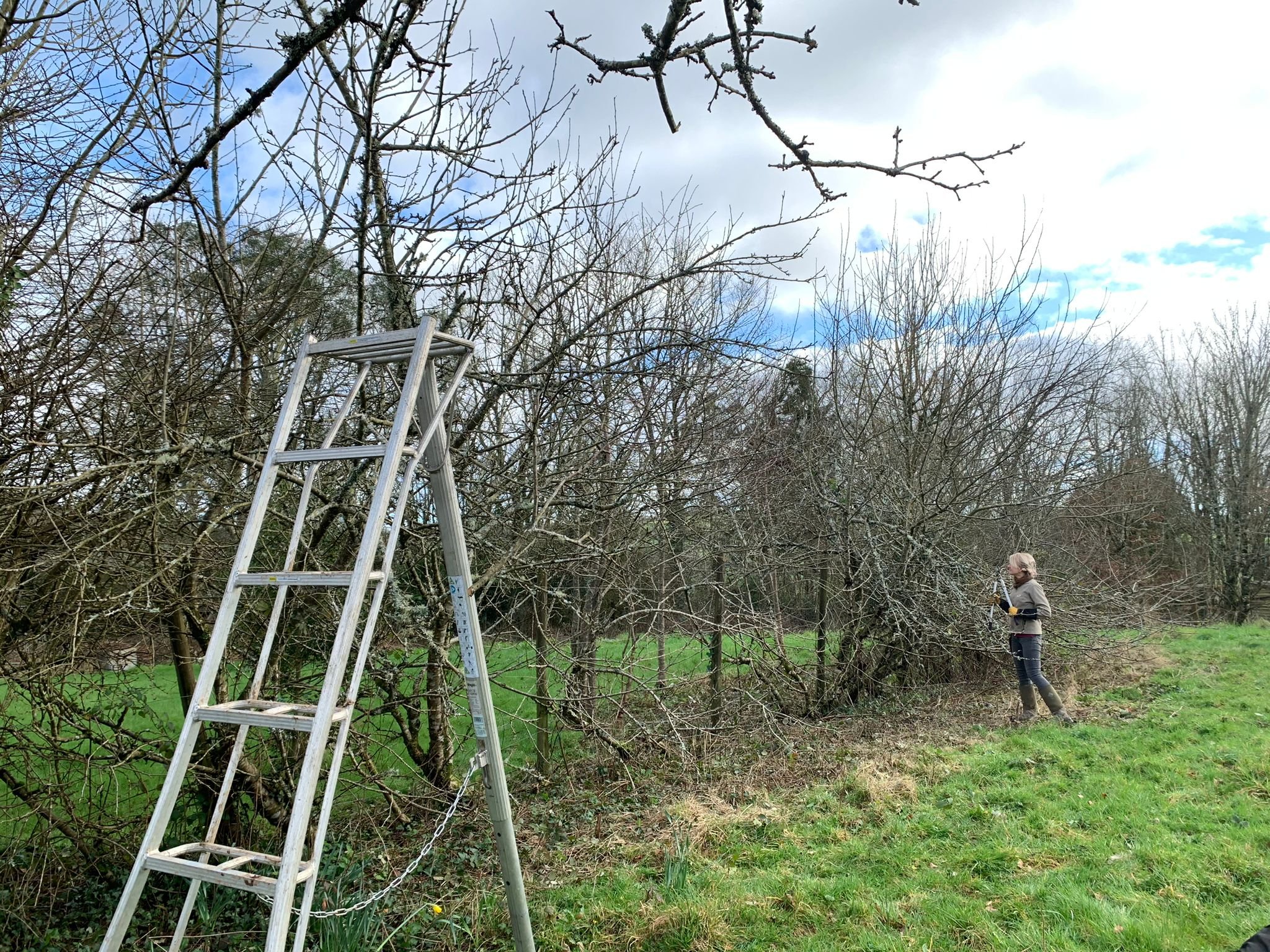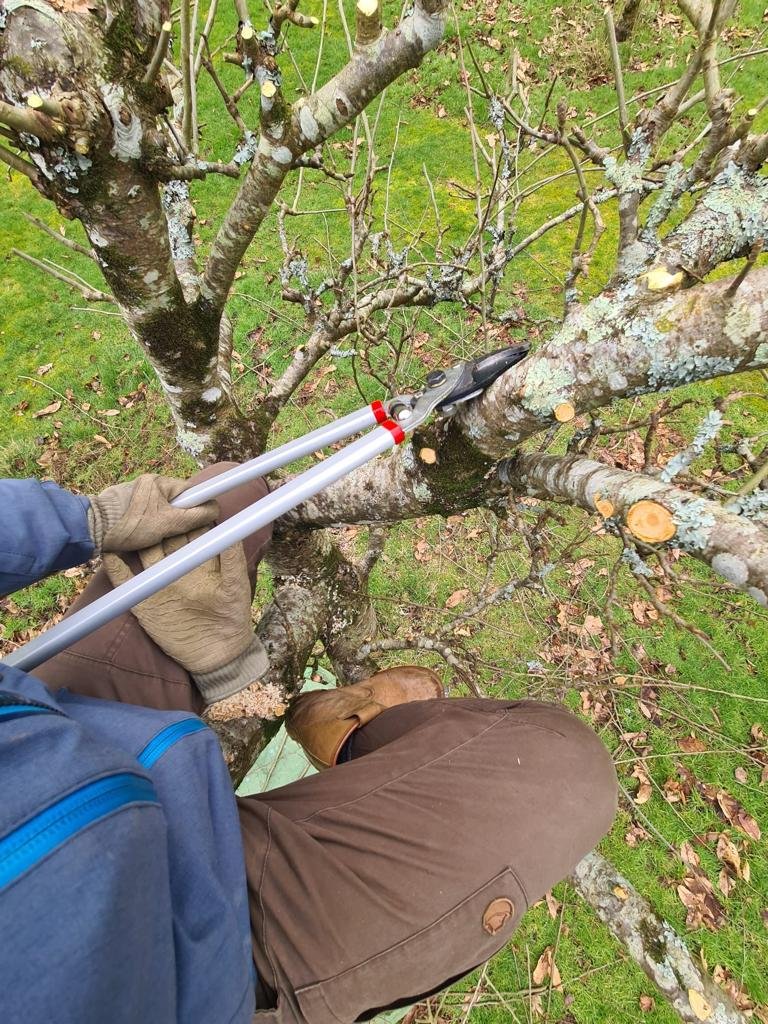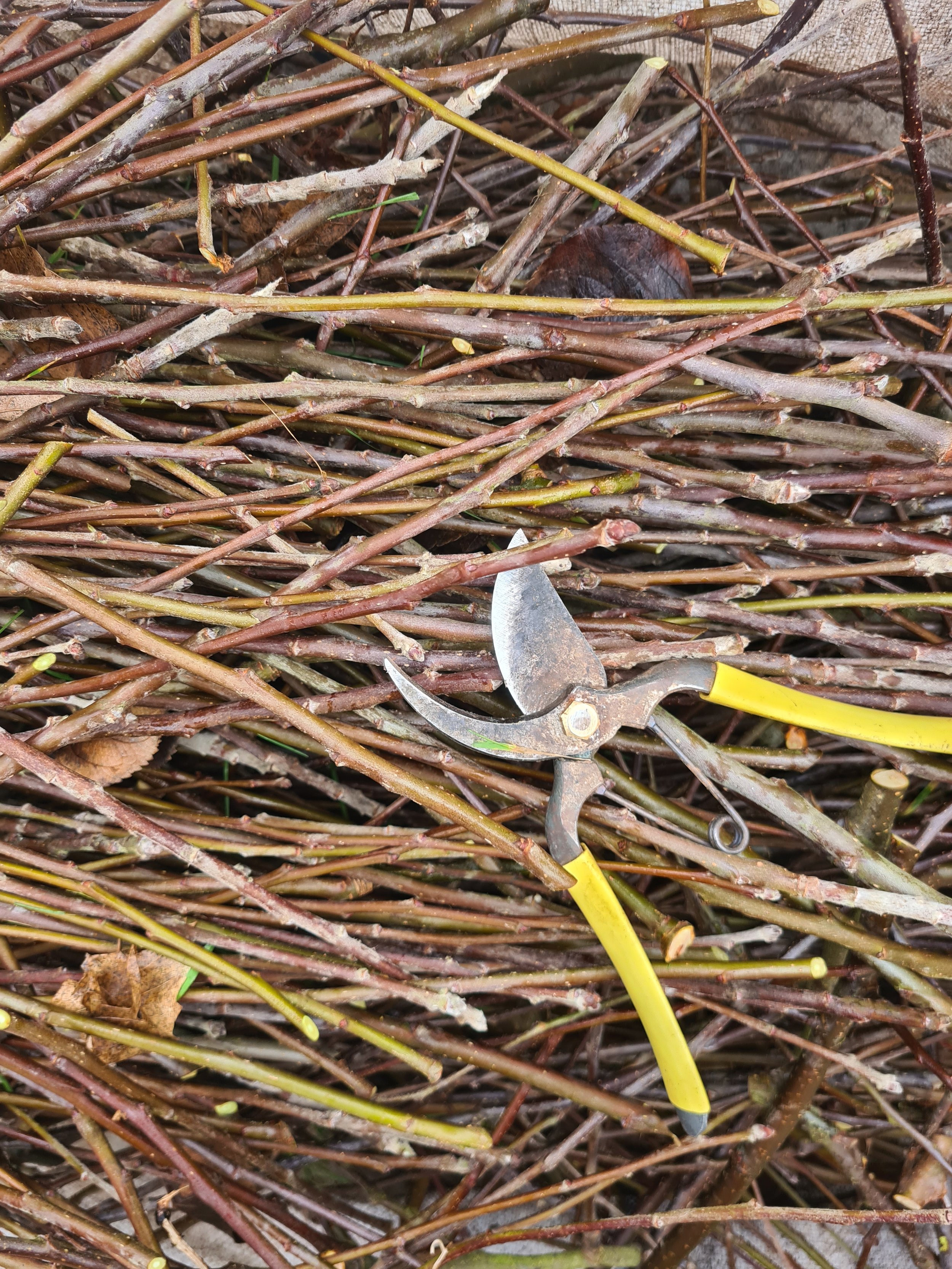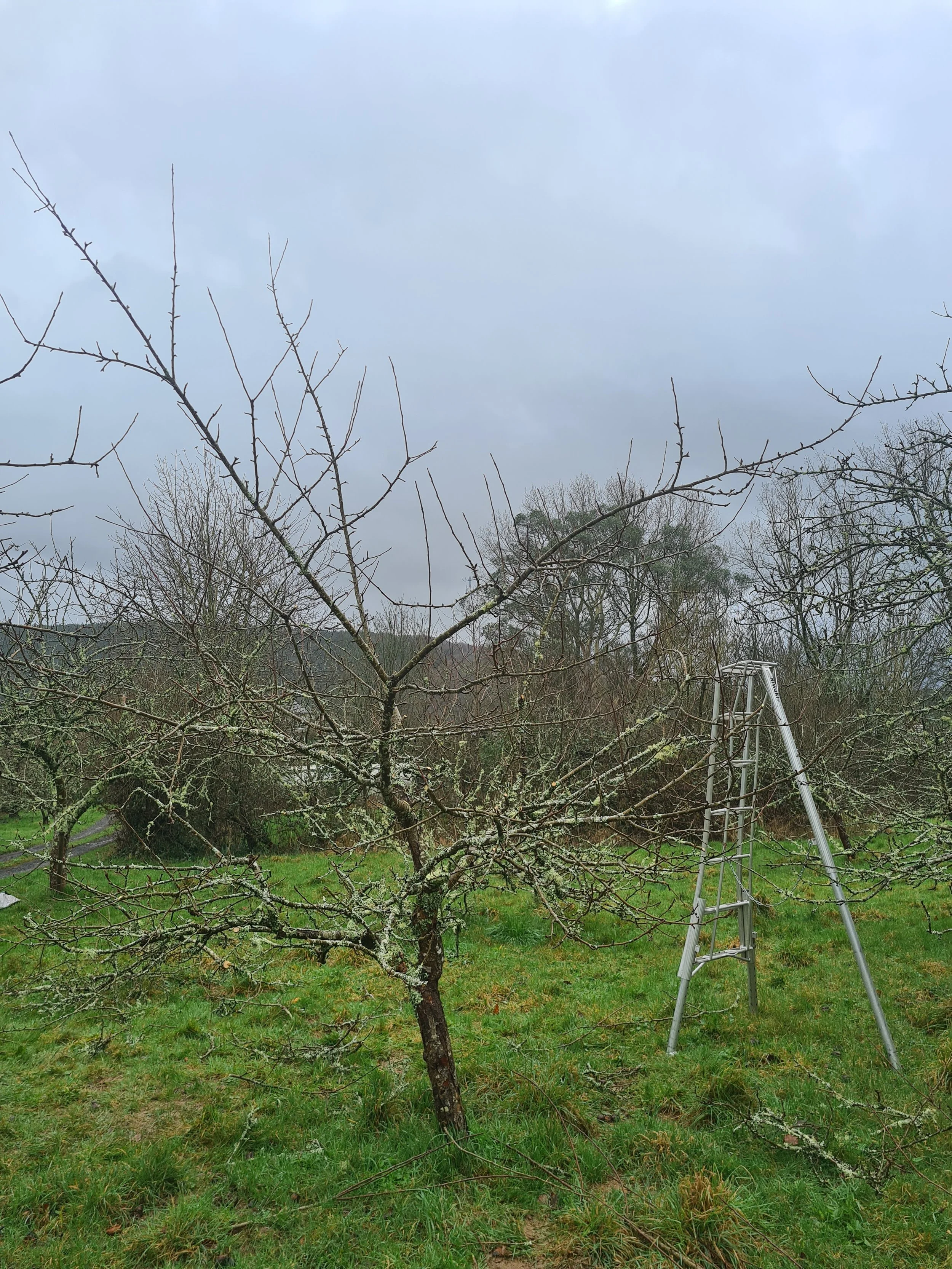
Orchard Pruning
in South Devon
Newton Ferrers & Noss Mayo, Totnes & Dartington, Salcombe & Kingsbridge, Dartmoor
The Art of Pruning
Caring for your fruit trees with thoughtful, careful and planned pruning is key to their health, longevity, reproductivity and the ecosystem that has established within them.
Focusing on the orchards within Dartmoor and within South Devon
Orchard Care & Services
To continue to thrive your fruit trees need specific seasonal care.
With 15 years caring for our own fruit trees we undertake restorative & productive pruning upon traditional estate orchards as well as individual trees in residential gardens.
We also plant and advise on new orchards, their siting and tree selection from our trusted local partner.
Why prune?
Whilst we should be mindful of the other surrounding trees in an orchard each tree should be treated as an individual and will have unique characteristics and development.
There are many reasons to prune and these can include;
Formative pruning of a young tree to establish a sound framework of branches providing a strong base for future growth.
Ensuring an established tree is stable and not likely to blow over or fall due to its present form.
Removing diseased, damaged and dead wood.
Restorative pruning to prevent disease by opening up the trees interior for airflow, cutting down the moist environment that arises within unpruned tangled masses of branches.
Maintaining a balance between vegetative growth and fruit production.
Stimulate new growth and young wood.
Increasing fruit production by allowing sunlight to reach the fruit and wood, needed to both for ripening.
Establishing a form such as an espalier or standard tree.
Careful and considered pruning
To continue to thrive your fruit trees need specific seasonal care. It is vital to prune fruit trees at the correct time of year, both to have the optimal growth but also stop prevent diseases that can establish if pruned at the incorrect time.
Apple, pear, quince and medlar are best pruned in winter to encourage more growth. They are only pruned in summer for reduced growth such as for a tree grown in a restricted form or trees that have been pruned too hard beforehand.
Plums, peaches, nectarines, apricots and cherries are best pruned in the spring and summer when they are growing. This is to prevent diseases that could become established if they are pruned in winter.
However, if you prune too hard a tree will send out vigorous growth to compensate, typically seen as upright shoots that are vegetative rather than fruiting growth.
As such it is much better to prune a tree lightly every year rather than heavily every few years. If intervention in an older established but untouched orchard is needed, it is often the case to get things under control over a number of consecutive years, taking no more than 20% a year when restoring a crowded tree.



